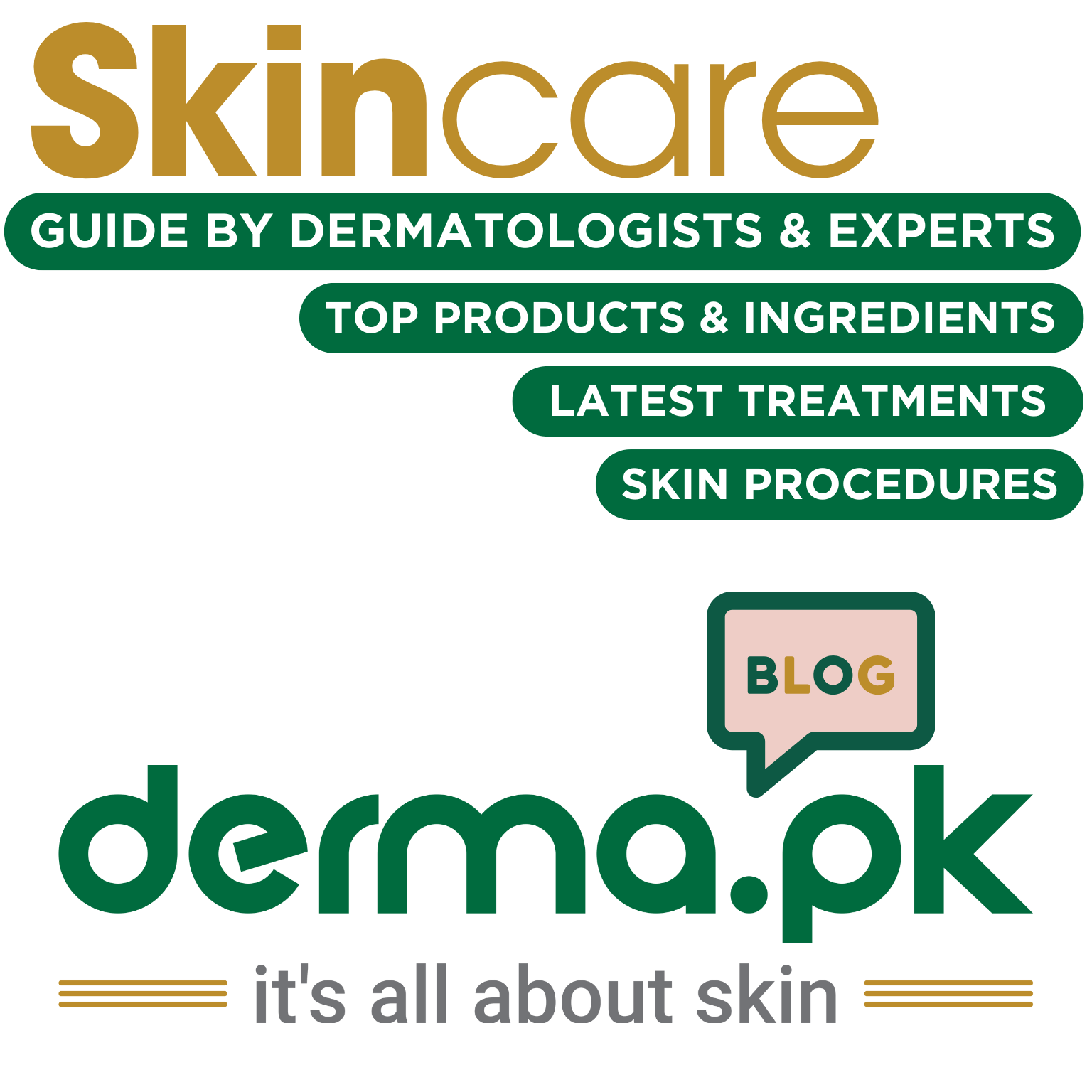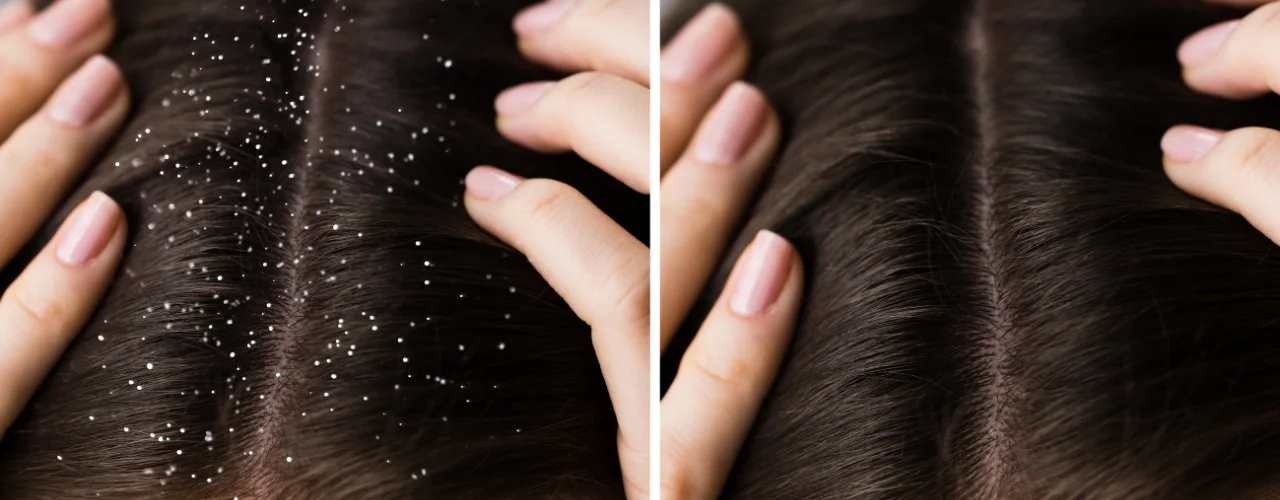What is Dandruff?
Dandruff, medically known as pityriasis simplex capillitii, is a condition characterized by the shedding of dead skin cells from the scalp. These cells clump together, forming visible flakes in the hair and on clothing.
Understanding Causes of Dandruff:
Natural Oils and Dandruff
The scalp naturally produces oils called sebum, crucial for maintaining healthy hair and skin. However, an excess of these oils can contribute to dandruff. When the scalp produces too much sebum, it can create an ideal environment for a yeast-like fungus called Malassezia to thrive. Malassezia feeds on sebum, and its presence can irritate the scalp, leading to inflammation and increased shedding of skin cells, which manifests as dandruff flakes.
Poor Hygiene and Dandruff
While poor hygiene alone might not directly cause dandruff, irregular or inadequate scalp hygiene can exacerbate the condition. Infrequent washing or improper cleaning of the scalp allows the accumulation of dead skin cells, oils, and dirt, creating an environment where Malassezia can flourish. This buildup can aggravate the scalp, leading to dandruff symptoms.
Skin Conditions and Dandruff
Skin conditions like seborrheic dermatitis, characterized by red, itchy, and flaky skin, are closely linked to dandruff. Seborrheic dermatitis often affects areas rich in oil glands, including the scalp. The presence of this condition can intensify dandruff symptoms due to increased inflammation and skin cell turnover.
Understanding Medical factors contributing to Dandruff:
- Seborrheic Dermatitis: A common skin condition causing red, greasy skin covered with flaky white or yellow scales.
- Malassezia: A fungus found on the scalp that plays a role in dandruff formation.
Signs and Symptoms of Dandruff
1. Flaky Scalp: The most noticeable sign of dandruff is the presence of white or yellowish flakes on the scalp and hair. These flakes can vary in size and texture, ranging from small and powdery to larger and greasy.
2. Itchy Scalp: Dandruff often leads to an itchy scalp. The irritation caused by dandruff can prompt scratching, which may worsen the condition and lead to further inflammation.
3. Dryness and Irritation: Dandruff can cause dryness and irritation on the scalp. The skin might appear dry and feel tight, leading to discomfort or a sensation of soreness.
4. Oily, Greasy Appearance: In some cases, scalp flakes may cause the scalp to appear oily or greasy. This occurs due to an overproduction of sebum, the natural oil produced by the scalp.
5. Redness or Inflammation: Seborrheic dermatitis, often associated with scalp flakes, can cause redness or inflammation on the scalp, particularly in areas with increased flaking.
6. Scalp Sensitivity: The scalp might become more sensitive to certain hair care products or environmental factors when dandruff is present. This sensitivity can cause a burning or tingling sensation.
7. Presence of Flakes on Clothing: scalp flakes aren’t confined to the scalp; they may be visible on clothing, especially on the shoulders and collars. The flakes are often more apparent when wearing dark-colored clothing.
8. Scalp Odor: In some cases, scalp flakes can be accompanied by an unpleasant odor. This odor is usually due to the buildup of oil, bacteria, and dead skin cells on the scalp.
9. Recurrent Flare-Ups: Dandruff symptoms can vary in intensity and may come and go. Some individuals may experience recurrent flare-ups during specific seasons, periods of stress, or due to changes in personal care routines.
Differentiating Dandruff from Other Scalp Conditions
While the signs and symptoms mentioned above are typical of dandruff, it’s essential to differentiate dandruff from other scalp conditions such as:
- Psoriasis: Characterized by thicker, silver-colored scales on the scalp and can extend beyond the hairline.
- Tinea Capitis: A fungal infection causing redness, itching, and sometimes bald patches on the scalp.
- Allergic Reactions: Reaction to certain hair care products or contact dermatitis can also lead to flaking and scalp irritation.
Treatments for Dandruff
1. Over-the-Counter (OTC) Shampoos
Anti-dandruff Shampoos: These shampoos contain active ingredients like:
- Zinc Pyrithione: It helps reduce yeast on the scalp and slows down skin cell turnover.
- Selenium Sulfide: Effective in reducing scalp flakes by slowing down skin cell death and reducing fungus.
- Ketoconazole: Has antifungal properties, effectively targeting the Malassezia fungus.
- Salicylic Acid: Helps to exfoliate the scalp, removing dead skin cells.
2. Natural Remedies
Tea Tree Oil: Exhibits antifungal properties. Mix a few drops with carrier oils like coconut oil and apply to the scalp.
Aloe Vera: Known for its soothing properties, aloe vera can calm an irritated scalp. Apply aloe vera gel directly to the scalp.
Apple Cider Vinegar: Diluted apple cider vinegar can help restore the scalp’s pH balance and reduce itchiness. Use it as a rinse after shampooing.
Coconut Oil: Moisturizes the scalp and may help reduce the growth of fungi. Apply warm coconut oil to the scalp, leave it for some time, then wash it off.
3. Prescription Treatments
Medicated Shampoos: Dermatologists may prescribe stronger shampoos with higher concentrations of active ingredients like ketoconazole or prescription-strength selenium sulfide.
Topical Steroids: For severe inflammation, doctors might prescribe corticosteroid lotions or creams to reduce swelling and itching.
Antifungal Creams or Lotions: These can target the underlying fungus causing dandruff, reducing its growth and symptoms.
4. Lifestyle Changes
Scalp Hygiene: Regular shampooing using mild, anti-dandruff products helps remove excess oils, dirt, and dead skin cells.
Dietary Adjustments: Some evidence suggests a link between diet and dandruff. Consuming a balanced diet rich in zinc, B vitamins, and healthy fats may support scalp health.
Stress Management: Stress can exacerbate dandruff. Engage in stress-relief activities like meditation, yoga, or exercise.
5. Professional Interventions
Dermatologist Consultation: For persistent or severe dandruff cases, seeking advice from a dermatologist is crucial. They can provide personalized treatment plans and identify any underlying conditions causing dandruff.
Prescription Medications: Dermatologists might prescribe oral antifungal medications or other treatments for severe or recurring dandruff cases.

Preventive Measures for Dandruff
1. Maintain Good Hygiene
- Regular Shampooing: Wash your hair regularly with a mild, anti-dandruff shampoo. Ensure thorough rinsing to remove dirt, oil, and dead skin cells that contribute to scalp flakes.
- Use Suitable Products: Choose shampoos specifically formulated for scalp flakes control, containing active ingredients like zinc pyrithione, ketoconazole, selenium sulfide, or salicylic acid.
2. Balanced Diet and Hydration
- Nutrient-Rich Diet: Consume a balanced diet rich in vitamins, minerals, and essential fatty acids. Include foods high in zinc, B vitamins, and omega-3 fatty acids, as they contribute to scalp health.
- Stay Hydrated: Drink an adequate amount of water daily to keep your scalp and skin hydrated.
3. Stress Management
- Stress Reduction: Stress can exacerbate dandruff. Engage in stress-relieving activities such as meditation, yoga, or hobbies to reduce stress levels.
4. Scalp Care and Grooming
- Gentle Hair Care: Avoid aggressive scratching or harsh brushing, as it can irritate the scalp and lead to dandruff. Use a soft-bristled brush and be gentle while grooming your hair.
- Avoid Tight Hairstyles: Hairstyles that pull on the scalp can worsen dandruff. Opt for looser hairstyles to reduce scalp irritation.
5. Limit Exposure to Irritants
- Minimize Heat Styling: Excessive use of heat styling tools can dry out the scalp. Limit the use of hairdryers, straighteners, and curling irons.
- Protect from Harsh Weather: Cover your head in extreme weather conditions (cold, wind, sun) to shield the scalp from potential irritation.
6. Regular Scalp Checks
- Monitor Scalp Health: Check your scalp regularly for any changes, redness, or irritation. Seek professional advice if you notice persistent issues.
7. Avoid Excessive Hair Products
- Limit Hair Products: Reduce the use of hair styling products, as they can build up on the scalp and contribute to dandruff. Choose non-greasy or water-based products when possible.
Dermatologist Consultation:
If you’re seeking specialized care and personalized solutions for persistent scalp flakes or other skin concerns, “Derma and Dental Clinic” in Bahria Town, Lahore, is here to offer expert dermatological consultations. Our experienced dermatologists provide comprehensive evaluations and tailored treatment plans to address various dermatological issues, including scalp flakes. With a focus on individualized care, our clinic offers state-of-the-art solutions for scalp health and scalp flakes management. Schedule a consultation today by calling us at 03041115000/ WhatsApp Us or visiting our clinic. Experience specialized care and regain confidence in your skin health at Derma and Dental Clinic.
Conclusion
Maintaining a healthy scalp and managing scalp flakes is crucial for overall hair health and confidence. By incorporating a combination of anti-dandruff treatments, natural remedies, and lifestyle adjustments, you can effectively control and reduce scalp flakes. Remember, consistency in scalp care routines, choosing suitable hair care products, and seeking professional advice when needed are key steps toward a flake-free, healthy scalp. Embrace these tips, prioritize scalp health, and regain the confidence to flaunt your beautiful, dandruff-free hair.”














active delta 8